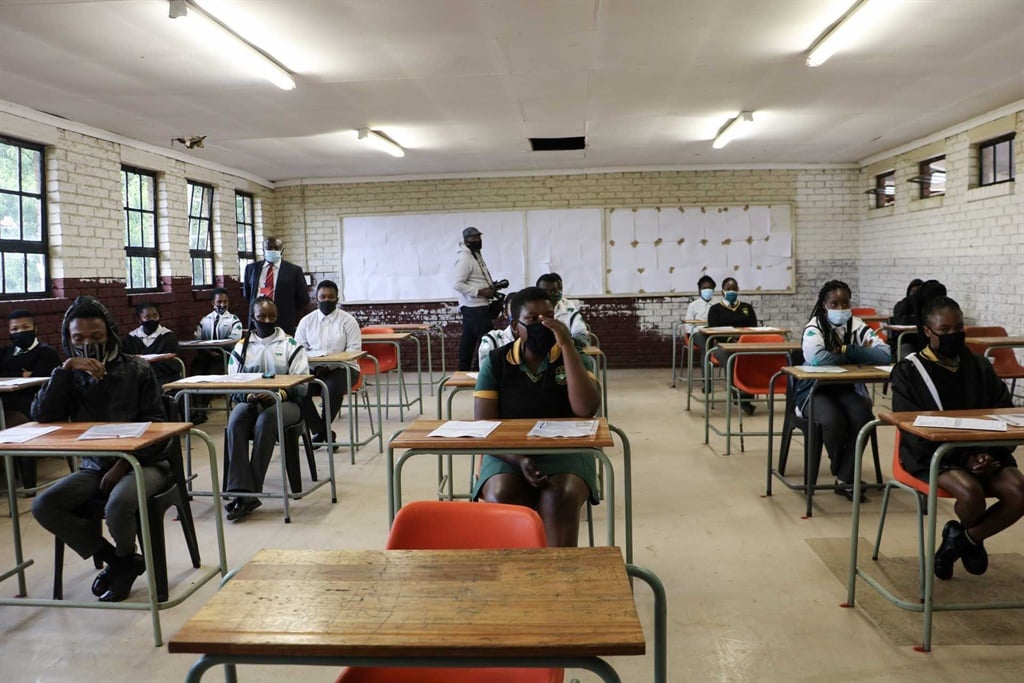
- Education experts have warned that the matric results produced by public schools are not likely to mirror those from IEB schools.
- Schools that wrote the 2020 IEB National Senior Certificate exams scored an overall pass rate of 98.07%.
- However, many public schools are under resourced and this is likely to have heavily impacted on their adaptation to lockdown learning, experts have said.
Independent Examinations Board's (IEB) schools have produced consistently high results in their Matric 2020 results, but education experts have warned that the public schooling system is not likely to mirror these.
Schools that wrote the 2020 IEB National Senior Certificate exams scored an overall pass rate of 98.07%, despite the difficult academic year. This is slightly lower than the previous year's pass rate of 98.82%.
But matriculants completing their school careers at public school are likely to have been far more severely affected by loss of classroom time due to the pandemic, experts say.
The National Senior Certificate results will be announced by Minister of Basic Education Angie Motshekga on Monday, with pupils receiving their reports on Tuesday.
According to education researcher and policy analyst Dr Sara Black, it was not expected that there would be a huge drop in IEB results, as the schools that carry out IEB exams are on the whole well-resourced.
She said:
Most pupils at IEB schools have access to the internet, devices and "adult mediation at home in the form of parents who are themselves quite highly educated", said Black. Added to this, the pupils have healthy nutrition and their safety and security needs met at home.
"Covid-19 would be an unpleasant change, but not one that would have drastically different effects in terms of curriculum coverage and overall student attainment," she said.
Education expert Mary Metcalfe said pupils in IEB settings consistently do well – something that is unsurprising considering education performance internationally correlates highly with socio-economic status.
Private schools 'far better equipped'
"This is a group of learners who would have had resources to study effectively at home. In my understanding, many of the IEB schools were able to maintain a learning programme consistently throughout lockdown, and this is evident in the results. The IEB matriculants are to be congratulated for all of their efforts and the schools for the way they've supported them," said Metcalfe.
Senior researcher in the Economics Department at Stellenbosch University, Dr Nic Spaull, said the IEB results were not a forecast of what public school pupils would have achieved.
"The IEB pass rate is essentially the same as it was last year, there was a very small drop to 98% and 88% qualified with a bachelor's pass. It's important to remember that only about 4% of children in SA attend private schools, the rest are in government schools. Private schools were far better equipped to deal with remote learning because the children come from wealthier families and most have devices at home or provided by the school," he said.
He said:
Metcalfe believes the difference in performance between the two schooling systems stems from the many disadvantaged children who attend public schools.
"In public schools, there are a wide range of learners from very different contexts. Public schools incorporate a large number of learners who do not perform as well at school because of a variety of reasons, including the disadvantage of poverty and a lack of resources at home," she said.
Black also expects public school results to have different outcomes to those of the IEB schools.
"For matric results in public schools, I think we're going to see a very, very different issue. It's not going to be a huge drop, in my prediction, in that that's not where the losses have occurred. The losses haven't occurred in the students that have managed to get themselves to the exam and write last year, the losses [are] in all the students who didn't."
Black raised concerns that the difficult teaching year would have exacerbated the number of pupils who had dropped out of school, saying the matric results "don't tell us where the problems in the system lie".
